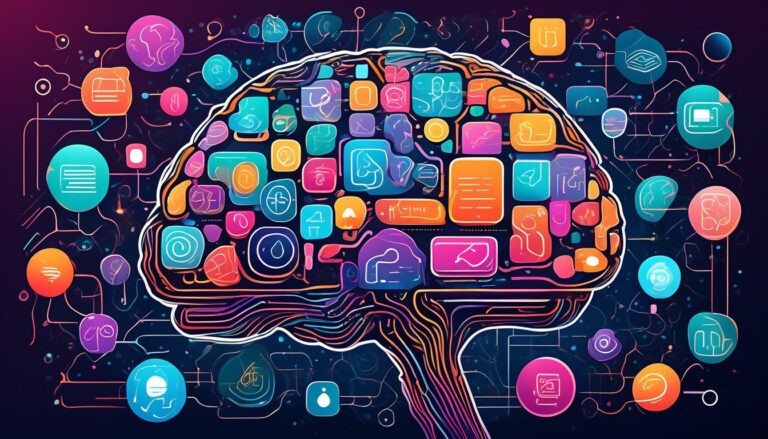In today’s digital age, content customization isn’t just a luxury—it’s a necessity. With the vast amount of information available online, users expect personalized experiences that cater to their unique interests and preferences.
Enter artificial intelligence (AI), the game-changer that’s revolutionizing how content is tailored to individual needs. AI algorithms analyze user behavior, preferences, and interactions to deliver highly relevant and engaging content.
From streaming services recommending your next binge-watch to e-commerce sites suggesting products you didn’t even know you wanted, AI’s role in content customization is transforming the way we consume information and interact with technology.
Benefits of AI in Customization
AI offers numerous benefits that make content customization more efficient and effective.
You can leverage AI to analyze vast amounts of data quickly, allowing you to tailor content to specific audience segments. This means you don’t have to spend hours sifting through data manually.
AI can also identify trends and preferences, helping you create content that resonates more with your audience.
Additionally, AI-driven tools can automate repetitive tasks, freeing up your time for more creative endeavors.
With AI, you can ensure that your content is always relevant and engaging.
It also helps you optimize your content strategy by providing insights and recommendations based on real-time data analysis.
Ultimately, AI makes your customization process smarter and more streamlined.
AI-Powered Personalization Techniques
AI-powered personalization techniques enable you to deliver highly targeted and relevant content to your audience. By analyzing user data, AI helps you understand preferences and behaviors, allowing you to tailor recommendations, emails, and advertisements precisely. Machine learning algorithms can predict what your audience wants to see next, enhancing engagement and increasing conversion rates.
You can also segment your audience more effectively using AI. Instead of broad categories, AI helps you create micro-segments based on specific interests and actions. Natural language processing (NLP) can analyze social media posts, reviews, and other text data to gauge sentiment and preferences. This enables you to adjust your content strategy dynamically, ensuring it always resonates with your audience.
Enhancing User Experience with AI
AI can significantly enhance user experience by delivering personalized and intuitive interactions. When you visit a website, AI can analyze your behavior and preferences to show you content that matches your interests. It can recommend products you’ll love, suggest articles you’ll find useful, and even tailor notifications to your specific needs.
Imagine an online shopping experience where the platform understands your style and suggests outfits that suit you perfectly. Or think about a news app that curates articles based on your reading history. AI makes these scenarios possible by continuously learning and adapting to your behavior.
By integrating AI, you’ll enjoy a seamless, engaging, and highly relevant experience, making your online interactions more efficient and enjoyable.
Future of AI in Content Tailoring
In the future, AI will revolutionize content tailoring by predicting user needs and preferences with unprecedented accuracy. You’ll find that AI algorithms can analyze your behavior, from browsing history to social media interactions, to deliver highly personalized content. This means you’ll get news articles, videos, and product recommendations that align perfectly with your interests.
Moreover, AI will adapt in real-time. Imagine reading an article and the AI suggests related topics you hadn’t even thought about. Businesses will leverage this to boost engagement and satisfaction. You’ll feel like every piece of content is curated just for you.
It’s not just about what you’ve liked in the past; AI will anticipate what you’ll want next, making your digital experience more seamless and enjoyable.
What ethical considerations should be taken into account when using AI for content customization?
When using AI for content customization, consider key ethical factors.
Ensure transparency in AI decision-making, respect user privacy, prevent bias in algorithms, and prioritize user well-being.
By addressing these concerns, you can foster responsible content customization.
How can small businesses leverage AI for content customization without a large budget?
To leverage AI for content customization on a small budget, focus on using free or low-cost tools like chatbots, email marketing platforms, and social media analytics.
Automate repetitive tasks to save time and personalize customer interactions effectively.
What are the potential risks and drawbacks of using AI in content customization?
When considering AI in content customization, potential risks include data privacy concerns, algorithm biases, and overreliance leading to reduced human creativity.
Drawbacks may involve high implementation costs, technical errors impacting user experience, and ethical dilemmas.
Conclusion
In conclusion, AI plays a crucial role in content customization by leveraging advanced personalization techniques to enhance user experience.
The benefits of AI in tailoring content to individual preferences are evident, with the potential for even more significant advancements in the future.
By utilizing AI-powered tools, businesses can create more engaging and targeted content that resonates with their audience, ultimately leading to increased customer satisfaction and loyalty.





